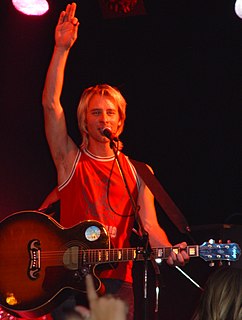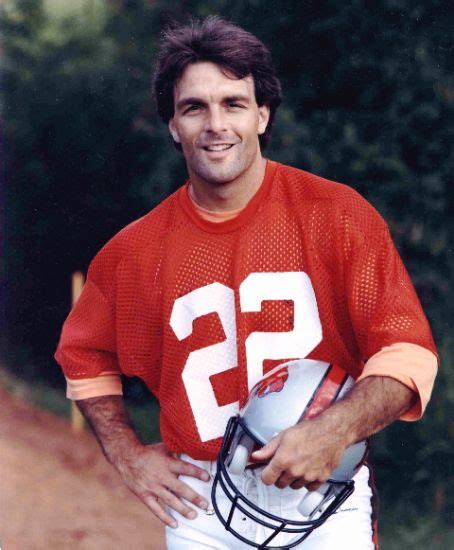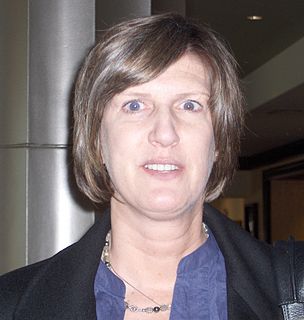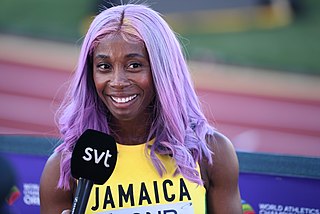A Quote by Chesney Hawkes
Before I knew it, we were No. 1 all over Europe and in the U.S. Top 10. We were living the dream, girls camped outside the house and everything.
Related Quotes
America has always been the most fertile ground for models - and they were always exported to other countries. When Eastern Europe opened up its doors to the rest of the world, a lot of the girls that were basically working there for $1 a month realized that if they were beautiful and that they could go to Paris and work for $1,000 a day versus the $10,000 that the other girls were demanding. So it created a huge imbalance in the financial structure of how clients could budget out campaigns. The market became flooded.
At the beginning of the 20th century, before the migration began, 90 percent of all African-Americans were living in the South. By the end of the Great Migration, nearly half of them were living outside the South in the great cities of the North and West. So when this migration began, you had a really small number of people who were living in the North and they were surviving as porters or domestics or preachers - some had risen to levels of professional jobs - but they were, in some ways, protected because they were so small.
We felt the imprisonment of being a girl, the way it made your mind active and dreamy, and how you ended up knowing which colors went together. We knew that the girls were our twins, that we all existed in space like animals with identical skins, and that they knew everything about us though we couldn’t fathom them at all. We knew, finally, that the girls were really women in disguise, that they understood love and even death, and that our job was merely to create the noise that seemed to fascinate them.
Growing up, I didn't have any comic books, at all. But my friend had a trunk full of them, so comic books were like candy for me. I would go over to his house for a sleep-over, and I would just be devouring everything I could get my hands on. I knew the sleep-over was going to be over, and I was going to go back to my house and it was going to be Kipling.
And I couldn't make fun of her for that dream. It was my dream, too. And Indian boys weren't supposed to dream like that. And white girls from small towns weren't supposed to dream big, either. We were supposed to be happy with our limitations. But there was no way Penelope and I were going to sit still. Nope, we both wanted to fly.
When I was in high school in the early 1970s, we knew we were running out of oil; we knew that easy sources were being capped; we knew that diversifying would be much better; we knew that there were terrible dictators and horrible governments that we were enriching who hated us. We knew all that and we did really nothing.
Do you remember when you were 10 or 11 years old and you really thought your folks were the best? They were completely omniscient and you took their word for everything. And then you got older and you went through this hideous age when suddenly they were the devil, they were bullies, and they didn't know anything.
First I went to a Jewish school, when I was very little. But when I was 12, they put me in a school with a lot of traditions, and they were educated people and they were talking about Greece and the Parthenon and I don't know what. All the kids, all the girls they had already seen that and knew that from their family, and I would say, "What are you talking about, what's that?" It's not my world. My grandparents were very well-educated people, but in the Jewish tradition. They knew everything about the Bible.
My parents are from the South - they were both born in Birmingham - so my dad saw R.E.M. really early on when they were playing college stuff in Athens. He had a bunch of their cassettes from the '80s, and when I was 8, 9, or 10, those were the sort of things that were around the cassette player in the living room.

































